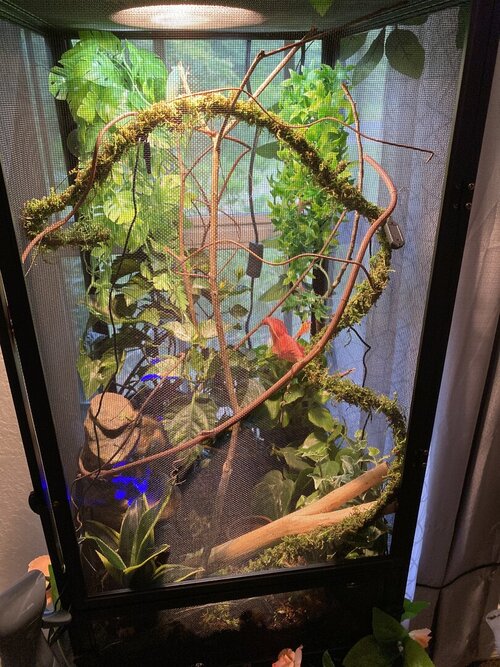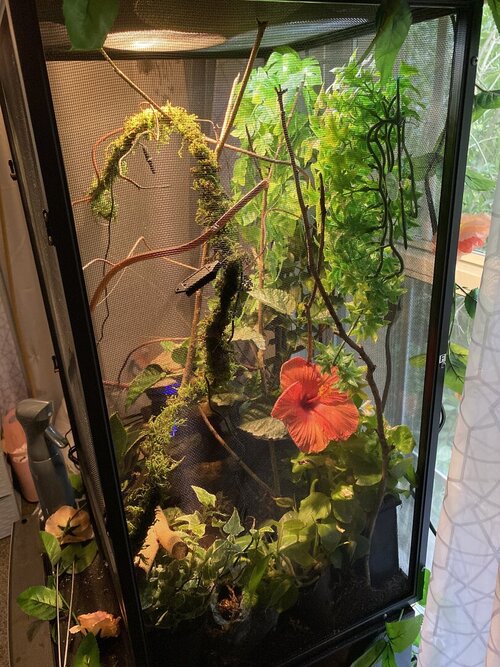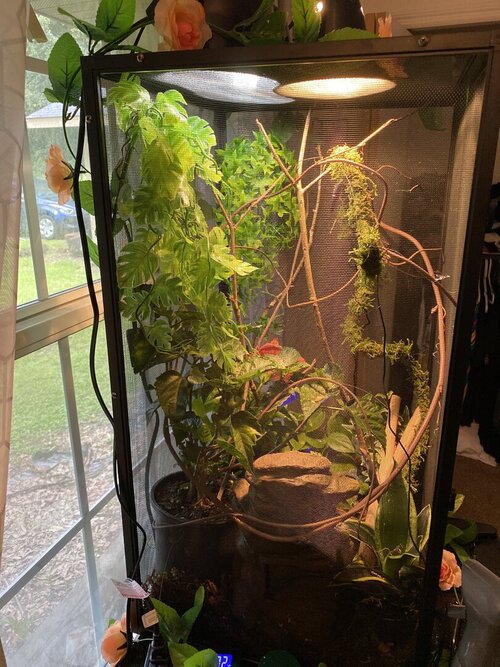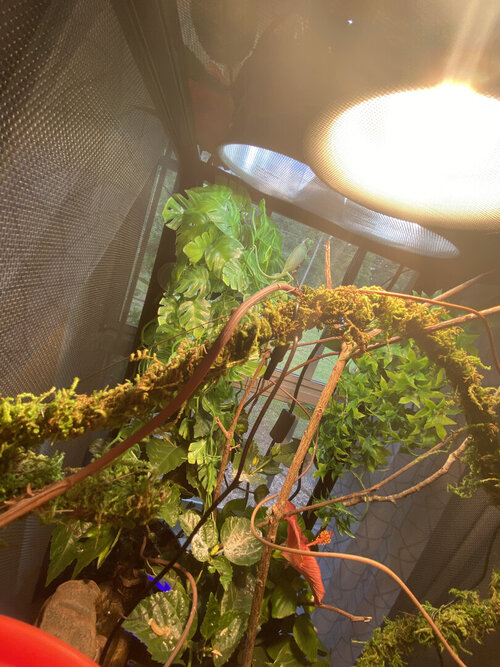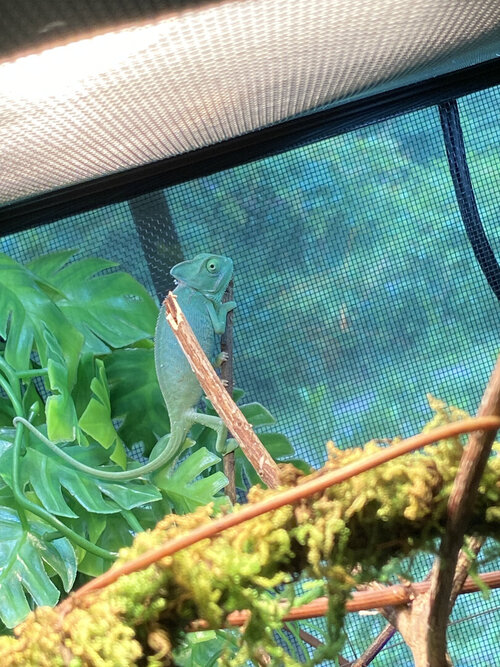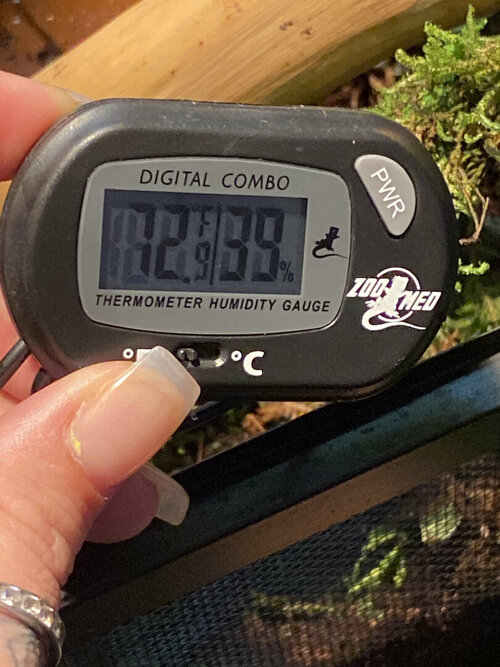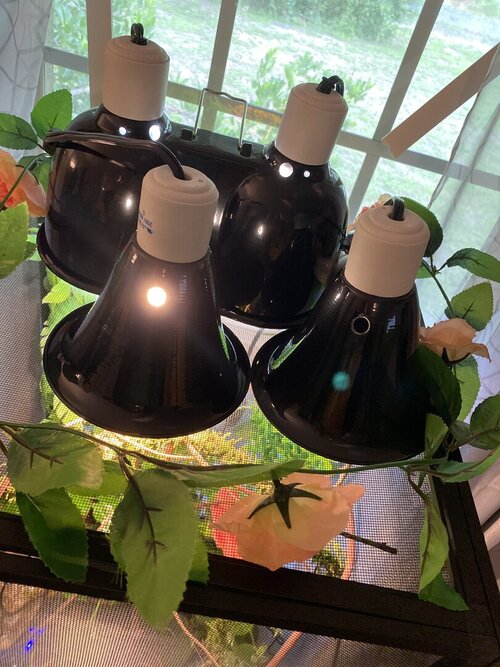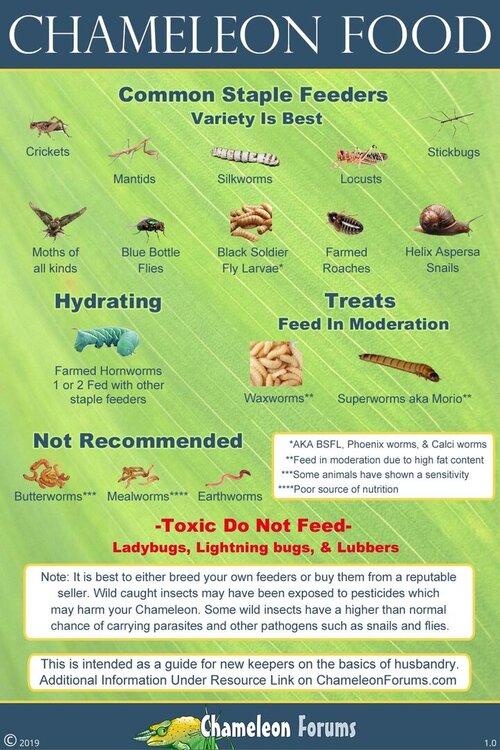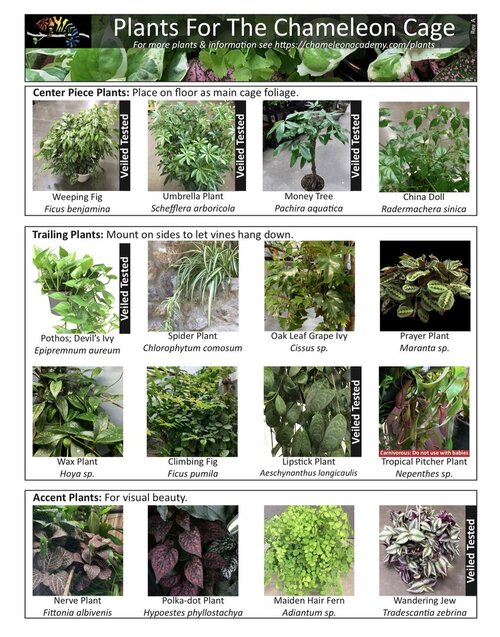tatted_beauty6
New Member
My Juvenile veiled chameleon appears to be sleeping during the day time, this just started about Wednesday afternoon around 5-5:30ish, I don’t turn his daylight and UBV light off until 8pm. His basking light is set at 85 during day hours and 68 at night. I’ve one had him a little over a week and I got him from a pet store. I feed him crickets most days and treat him with wax worms. He has Artificial and live plants in his enclosure. I keep his enclosure around 60% humidity. He has a daylight and ubv 10.0, and I keep a night bulb on night to ensure he stay warm.I Have caught him eating the hibiscus plant today on top of a wax worm. The pet store said only to feed him every other day but in doing more research I see she was wrong and the amount and how often. His behavior has seem to be getting better today and I’m going to buy plant for the enclosure. I’m still learning the kinks with this guy. So please help!

